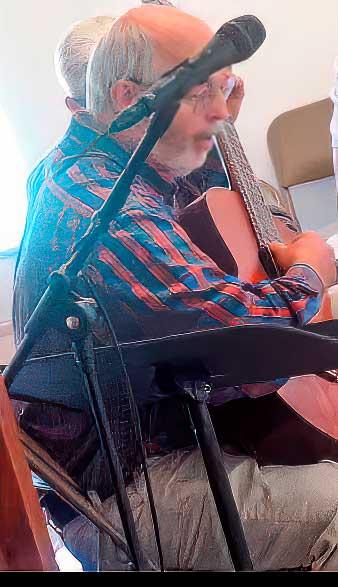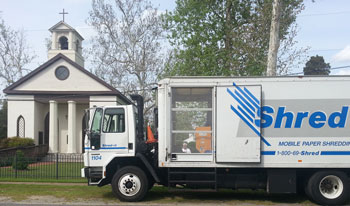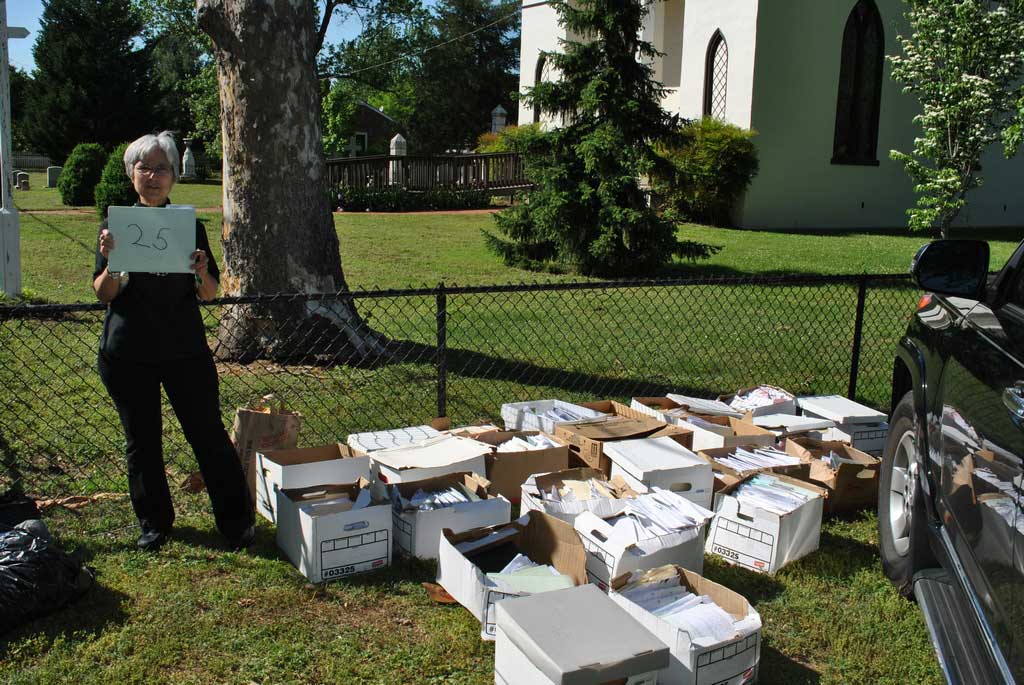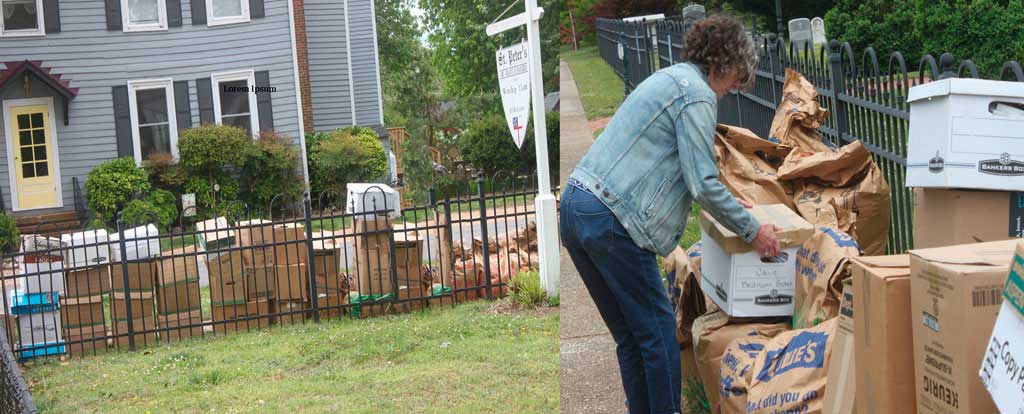Click here to view in a new window.
2023 Sun May 7
John 14:1-14 – “Jesus is the dam that holds us when the levee breaks.”
From “Christian Century” – Jared E. Alcántara

“…In times of quiet desperation, Jesus says to us what he says to his disciples: I will be the dam that holds you when the levee breaks, the tunnel that brings you through to the other side when you’re stirred up, unsettled, thrown into confusion. Do not let your hearts be troubled. Trust in God. Trust also in me.
“The disciples need to hear this. Jesus has just told them he will be with them “only a little longer.” Now he tells them he’s leaving. He will come back to get them but has to leave them first. They don’t need to worry, though. They already know the way.
“Thomas asks the same question that is likely on the other disciples’ minds. “If we don’t know where you’re going, how will we know the way?”
“Jesus’ answer has often been used as a religious litmus test, at least in North America. The way, truth, and life. To get to the Father, you’ve got to go through Jesus, like he’s some kind of bouncer standing by to vet our access to the triune God. In or out, pass or fail.
“This seems like a strange thing to say right after telling followers not to let their hearts be troubled. Don’t get me wrong: Jesus makes exclusive claims, and he has hard teachings. Even these words have an edge to them. But the first task is to discern what Jesus is saying to those who believe him in his context—before making conclusions about what he is saying to those who do not believe him in ours.
“What if Jesus wants to reframe Thomas’s questions from “where” and “how” questions to “who” questions? It would not be the first time that he answered a question someone wasn’t asking. It would make more sense after telling his followers not to let their hearts be troubled. So, you want to know the way? You have a person. So, you want to know the how? You have a person.
“Do you know anyone who has no desire whatsoever to find a path, to learn the truth, or to experience life? Now consider the possibility that all three—the path, the truth, the life—can be found in a person. That is what Jesus is saying here, and it is good news.
“When the rains come, when the waters rise, our temptation is to look for answers to our “where” and “how” questions. In those moments—in all moments—there is one who stands before us, one in whom and through whom is the way, the truth, and the life. When we do not know the way, he will transform our questions into better ones. When our hearts are stirred up, he will hold us through the storm.”
Easter 5 – Many Rooms – Jan L. Richardson

"Many Rooms" -Jan L. Richardson
From the Painted Prayerbook by Jan L. Richardson
"Many years ago, a recurring dream began to take hold of my nighttime brain. The details shift and change each time it visits, but the essence of the dream remains the same: I am wandering through shops—not a mall, but a series of connected stores. The stores are the kind that I love to browse through, the sort that I find in communities that value artistry. As I wander among the stores that spill into one another, I savor what I see: richly hued artwork, finely crafted jewelry, beautiful pottery that calls out for me to touch it.
"In the dream, no matter the changing details, I always find a bookstore. Often it’s a used bookstore, crammed with volumes and with more shelves around each turn. Once the bookstore contained a case of gorgeous hand-bound books, displayed like artwork. I marveled at the colors, textures, and designs, knowing as I touched the books, I want to do this, to create books like these.
"Along with the persistent presence of a bookstore, one other detail of the dream never changes: it always begins with my walking down a familiar street. I turn a corner and suddenly find myself among the shops, thinking, Of course—that’s where they were! These treasures were in my neighborhood the whole time, waiting for me to find them.
"And you know the way to the place where I am going, Jesus says to his disciples on the night before his death. Here at the table where they share their final meal before his crucifixion, there are many things Jesus wants to tell them. His hunger for them to know—which we see again and again in the gospel texts in this Easter season—becomes particularly acute as Jesus gathers with them just hours before his death. And so he will go on to tell them about the Holy Spirit whom he will send, and how this Spirit will be in them. Jesus will tell them that he is the true vine in which they will abide. He will tell them—command them—to love one another, and how the world will hate them. He will tell them that their sorrow will turn to joy. Jesus is desperate for them to know these things, and more.
"But when he tells them, before all this, of the place he is preparing for them—the house with many dwelling places—Jesus tells them that they already know the way. When Thomas—ever the good questioner—asks him how they can know the way, Jesus reminds them that he himself is the way. If they know him, they know the way, and the One who sent him to prepare the way for them.
"This text has me wondering if following in this way has less to do with striving and working at it, in the frenetic fashion we sometimes do, than with letting ourselves recognize what we already know; less to do with wrapping our brains around points of belief that grow so contentious than with opening our eyes to the door that has always been there in our soul, our heart, waiting for us to see it and walk through it and find the spacious dwelling place that has been there all along. To be sure, following Christ our Way takes work and effort and focus and sacrifice. Yet I find myself thinking of the poem by the Sufi poet Rumi in which he writes of how he has been living on the “lip of insanity,” as he puts it, knocking incessantly on a door. Finally the door opens, and he realizes, “I’ve been knocking from the inside!”
"Here at the table, Jesus wants to make clear that although the place he describes is a someday place, a promised home that he is preparing, it is at the same time a dwelling that his followers can have a glimpse of in this world, a space that even now takes form in our midst. An abiding-place fashioned by—and fashioned of—the Christ who dwells in God, and is a dwelling place for God, and offers his own self to us as both a habitation and a way. A way that we find by opening the door that is already within us.
"In this season, where are you making your home? Where are you dwelling? Is there a place in your life where you are pushing and pouring out your energy—something you are trying to wrap your brain around to understand it or to change it—when the way might lie instead in releasing, in finding the doorway that appears in letting go?"
Sunday links, Easter 5, May 7, 2023

Larry Saylor’s offertory April 30, 2023
Coming up!
Dispose of sensitive documents safely and securely, and free up needed space at home or work.
Shred-it, May 19, an Essential Ministry





Above – From Left to right, top to bottom – 2013, 2015, 2017, 2019, 2022
Please note the change of date from Wed, May 10 to Fri, May 19
Shred-it is an essential ministry because it involves a number of people around a common necessary task that is best accomplished by professionals.
Shred-it’s goal is to safely dispose of records no longer needed. It may be old Tax returns, bank statements, investment records, any expired document etc. They lie around gathering dust and may contain personal information that needs to be kept secured even if the records are no longer pertinent or useful. For obvious reasons we don’t want to put them in the regular trash or even recycling bin.
There is also the environmental benefit for having these documents shred rather than lying in some landfill. We don’t need any more paper cluttering our lives!
Shred-it is a fellowship event as well that goes beyond the church. It is a community event We get to see people who come around once a year from the community. We might ask “What’s new ? How has your life changed over the year ? Have you seen so and so from the neighborhood” and then .”Thanks for contributing to St. Peter’s ministries.” Andrea usually had food to encourage the fellowship.
It is also a time to remember those no longer part of our lives whether due to relocation, sickness, death or some other reason. It is another event that is part of the scrapbook of our lives.
It is also a fundraiser for our outreach ministries. We have netted $2,570 over the last 10 years for outreach ministries.

Finally, Shred-it is another opportunity to thank Andrea Pogue who came up with the idea and has organized it since. For all these reasons here it is a great ministry!
So I am encouraging you to check your valuable records, stuff that needs to go that you don’t want to entrust with your regular garbage or recycling services and plan to bring it to St. Peter’s on May 10 to let the professionals dispose of it securely. Publicize it to your friends!
Recent Articles, May 7, 2023
1. Easter Tide, Coming Up
Easter Tide
Easter Tide from Forward Movement
-Coming up!-
Prayer events coming up
Shred-it, now May 19, an Essential Ministry
2. This Sunday May 7
Lectionary May 7
Bulletin May 7
Photos Easter 5
Videos, Easter 5
-Meanings in the Scriptures-
Voices, May 7
Easter 5, Year A
Easter 5 Many Rooms – Jan L. Richardson
“I am the Way” -SALT Commentary Lectionary Easter 5
Vanderbilt’s Visual Lectionary Easter 5
John 14:1-14 – “Jesus is the dam that holds us when the levee breaks.”
Easter 5, year A
I.Theme – Mystical experiences from Stephen and the Apostles about the truth and revelation of God and the foundation of the building, the church.

"I am the Road, the Truth and Life" – Vasakyrkan, Gothenburg, Sweden
The lectionary readings are here or individually:
First reading – Acts 7:55-60
Psalm – Psalm 31:1-5, 15-16 Page 622, BCP
Epistle –1 Peter 2:2-10
Gospel – John 14:1-14
Today’s readings portray mystical and unitive experiences come from the challenges of life. Mysticism often provides us with a greater perspective that liberates us from self-centeredness and defensiveness, thus enabling us to live compassionately.
In the course of his inquisition and martyrdom, in the First Reading Stephen has a vision of God. It enables him to experience his death fearlessly and compassionately. Like Jesus before him, he faces persecution with forgiveness, recognizing from his larger spiritual perspective than the utter ignorance of his persecutors. Their actions are based on a wrong perception of reality; they experience grace as threat and resurrection as destructive of their religious tradition, rather than pathways that will lead to a transformation and expansion of their faith. Perhaps someday, Stephen’s persecutors, including Paul, who watches the stoning with a sense of approval, will experience the living Christ and truly know God’s nature. Stephen’s own forgiveness, based on his mystical experience, may create a ripple effect, opening the door to new possibilities for divine action in his persecutors’ lives.
The Psalmist gains courage through a larger perspective. Threats are all around, danger abounds, but the Psalmist proclaims “my times are in your hand.” The gift of a larger spiritual perspective enables him to experience God’s love shining upon him.
The author of I Peter reminds his listeners to feast on spiritual soul food. They have tasted the goodness of God, and from that nurture, they are able to be “built into a spiritual house.” Growing in spirit enables us to become a royal priesthood, living by life-giving values and sharing good news by our words and actions. This spiritual priesthood is not set apart as better than others, but given the call to healing and transformation, of not only sharing good news but becoming good news to the world.
John 14:1-14 begins with metaphor to a house – In God’s realm there are many dwelling places; Jesus as the Christ prepares a place for us – a future and a hope we can rely on – that enables us to experience eternal life in the here and now. We can face persecution, aging, and death because of our faith in God’s everlasting love. The trials we face now are part of a larger adventure of growing with God.
The passage becomes complicated by the words “I am the way, the truth, and the life. No one comes to the Father except by me.” Perhaps, Jesus is saying, “I am providing a way. It’s not up to you to decide who’s in and who’s out. Look at my life and you will see the heart of God. You will see God’s love for the lost and broken. Don’t place a wall where I have placed a bridge. Don’t decide the scope of salvation, and exclude those I love.” God’s way addresses us in many ways – just as there are many mansions – and we would do well to be generous rather than stingy about the scope of salvation.
Then, Jesus describes his own unitive experience with God. Just look at Jesus and you will see the heart of God: God is in me, and I am in God.The unity of God and Jesus is a unity of vision and aim, an alignment of spirit that releases divine energies in our world.
The passage concludes with the promise that we can align ourselves with God, and then do greater things than we can imagine. What could these greater things be? Given the vision of Jesus’ life presented in the gospels, we could do greater acts of hospitality, spiritual nurture, and healing. We have powers we can’t imagine that can be released when we align ourselves with Christ’s way, letting Christ be the center of our experiences and letting God’s vision guide us moment by moment.
We are always on holy ground. We all can be mystics in our own unique ways, seeing deeply into the universe, and we can have powers to heal and embrace through our relationship with God, individually and as congregations.
